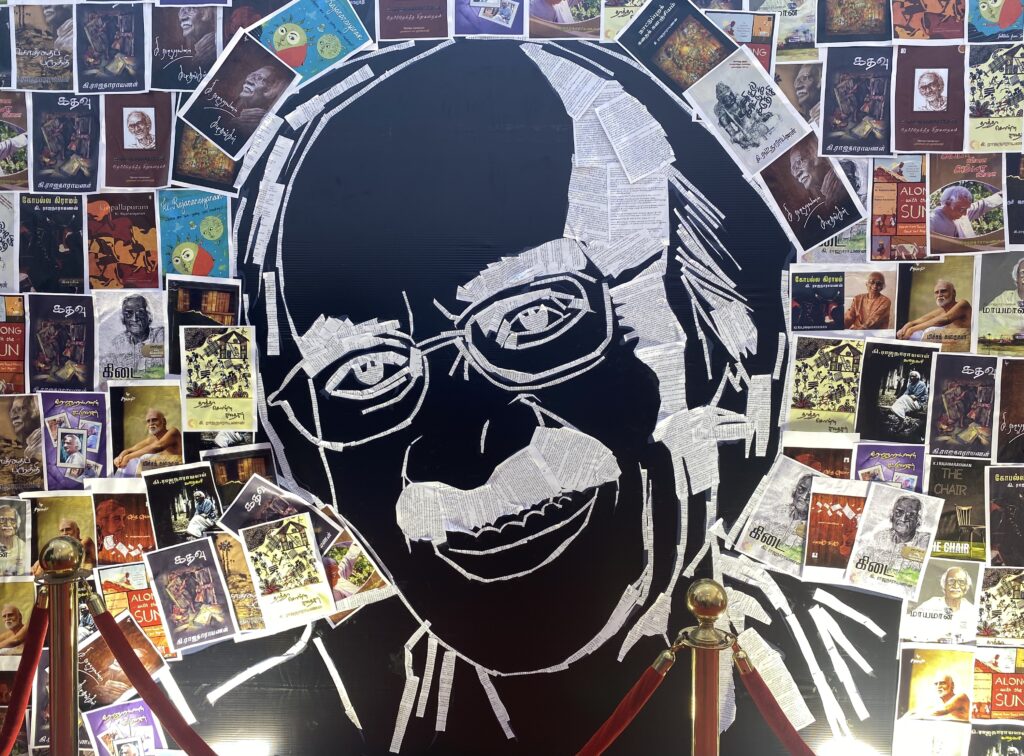In an era where art and literary expressions have become cultural sensations, literature festivals have carved a separate niche for themselves. These festivals witness the literary world enhancing its social presence, where authors and publishers come together and engage with the reading community, thereby adding another layer of interaction between the works of art and their cultural significance.
A country of multiple and varied cultures, India holds a unique place hosting such forums. And a literature festival as a platform shines light on regional literature, language, culture, and authors alike. One such unique literary outlook originates from Tamil Nadu in the form of ‘Karisal Literary Festival’, which aims to explore literature created out of interaction with the topography of a particular place and the way of life.
Tamil Nadu has four major landforms: mountains, forests, fertile lands (or plains), and coastal regions. In times of water scarcity, the sun-baked land gives off a deserted look. The term ‘Karisal’ denotes places found with black soil in Tamil Nadu, and the literary landscape documents the lives of the people who are dependent on the land for their livelihoods.
Geographically, Karisal literature covers the area from Thirumangalam in Madurai district to Gangai Kondan in Tirunelveli district. The common attributing factor being the focus on simple lives, farming and other labour communities, extreme heat, water scarcity, and other trivialities that light up these stories with an array of emotions and situations sourced from realism.


The first edition of Karisal Literary Festival took place in 2023, in the Virudhunagar district, on December 8 and 9. It witnessed the confluence of Karisal culture with its literary counterparts, and celebrated the dialectical variant of regional literature, by showcasing the authors and their works, and asserting the importance of recognising regional literature in documenting people, language, and culture in the sands of time.
The festival had seen many celebrated Tamil writers in attendance. Perumal Murgan, the JCB Prize winner, delivered the special address, followed by Sahitya Akademi Award winner S. Ramakrishnan’s virtual address. The stage was adorned by many Karisal literary conversations conducted by various writers such as Cho Dharman, Udhayasankar, R. Narumpoonathan, Bama, Lakshmana Perumal, Kavita Jawahar, and several others. Elucidating the salient features of Karisal literature, Virudhunagar District Collector, Dr. V.P. Jayaseelan highlighted, “Women toil harder than men in the household as well as farmlands, and their labour and hard work are woven into the Karisal way of life, a significant detail highlighted by all the authors,” thereby asserting how such regional literature provide a space for subaltern representation.
Spearheaded as a movement by Ki Rajanarayanan, Karisal turned into a distinctive section of Tamil literature due to the continued efforts and contribution of various writers such as Ku. Alagirisamy, Pa. Jayaprakasam, Ve. Ra. Veluchamy, Surangudi Muthanantham, Suyambulingam, and others. The Karisal Literary Festival 2023 honoured the legacy of the Karisal writings, and helped identify more than 50 regional authors by providing them with a voice and a platform to showcase their literary versatility.

While the established literature festivals happening annually in India – in Jaipur, Kerala, Chennai, Hyderabad – have served as a platform for representation of Indian as well as international authors writing in English, regional authors, and their works have achieved little to none of that. In the given situation, the regional literary festivals are like rains for the parched land as they advocate inclusivity in representation by focusing, uplifting, and amplifying the subaltern literary voices to bring in more cultural and literary awareness on a national level.
Similar literary festivals are also being conducted in other cities of Tamil Nadu. The Porunai Literary Festival, the Vaigai Literary Festival, The Siruvani Literary Festival, and The Pennai Literary Festival, are a few examples. All these festivals have been intentionally named after rivers to exhibit regional literature that documents life and is deeply ingrained in the natural resources present.
Across Tamil Nadu, as the land changes, the lifestyle and dialect also change. Identifying the cultural variations as portrayed in the dialectical branches of regional literary expanse, the renowned Karisal writer S. Ramakrishnan notes that while travelling through India, one can notice how at every three to four hours of distance, a notable change in food, language, dialect, and culture can be witnessed.
Karisal literature is a microscopic look at this cultural distinctiveness and a record of unique narratives that are intricately braided into the surrounding soil. A literary festival devoted to these idiosyncrasies is as true as rain in representing the local culture and subaltern narratives.
Edited by: Arunima & Shanti

